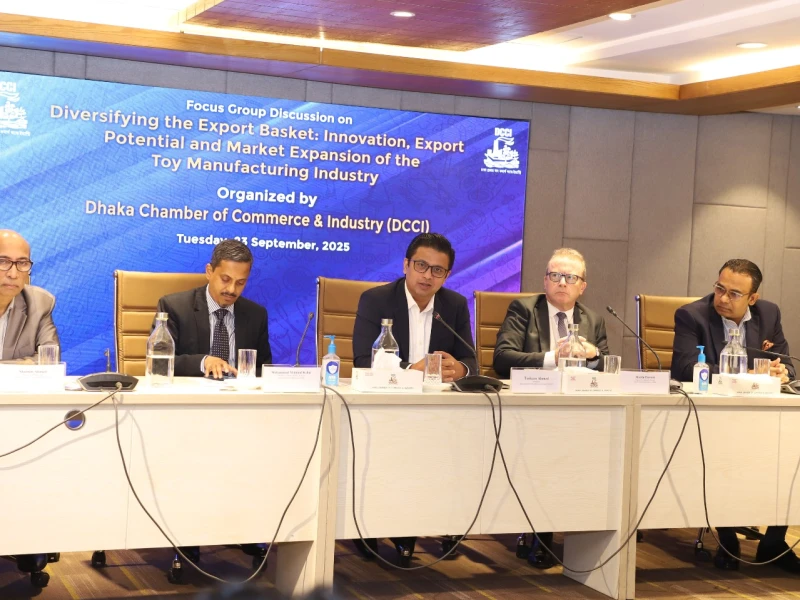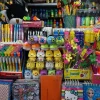The National Board of Revenue (NBR) has said it is working to simplify policies and extend bonded facilities for potential sectors like toy manufacturing to help Bangladesh survive in the post-LDC era, while the Dhaka Chamber of Commerce and Industry (DCCI) has called for a specific policy framework to boost exports from the industry.
Speaking at a focus group discussion (FGD) on “Diversifying the Export Basket: Innovation, Export Potential and Market Expansion of the Toy Manufacturing Industry” held at DCCI on Tuesday, NBR Member (Customs: Policy & ICT) Muhammad Mubinul Kabir said the revenue authority imposes tariffs in line with the 2023 Tariff Policy and aligns its strategies with donor recommendations to strengthen efficiency and overall capacity.
He noted that although there is little scope for mid-year policy changes, the government may consider providing policy support for toy manufacturing in the upcoming budget.
The RMG sector has enjoyed policy support for the last 40 years, but now it is time to rethink its capacity. Toy entrepreneurs should also focus on enhancing their own skills, innovation, and product development rather than relying solely on government incentives, he added.
British High Commission Deputy Development Director Martin Dawson said Bangladeshi toys have strong export potential and the UK government is keen to cooperate.
He expressed hope that if policy barriers are removed, exports to the UK could multiply, particularly as the UK has recently simplified Rules of Origin requirements.
Presenting the keynote paper, Shamim Ahmed, President of Bangladesh Plastic Goods Manufacturers and Exporters Association (BPGMEA), said the domestic toy market is worth nearly Tk 400 billion, with around 250 of the country’s 5,000 plastic enterprises engaged in toy manufacturing, employing about 1.5 million people. Exports from this sector reached USD 276 million in FY 2023–24, up from just USD 15.23 million in FY 2016–17.
Despite this growth, toy exports stood at only USD 77 million in FY 2022–23 against a global market of over USD 100 billion.
Shamim highlighted lack of product quality assurance, poor infrastructure, and lagging innovation as major challenges. He stressed cluster development, joint venture investment, infrastructural expansion, toy-specific policy formulation, and reduction of supplementary duties on machinery.
Industry representatives including Md. Juhirul Islam Shimul (Redmin Industries Ltd.), Musa Bin Tareque (Hashy Tiger Company Ltd.), Dr. Abdullah Al Mamun (Department of Environment), Md. Anisur Rahman (Premiaflex Plastics Ltd.), Yasir Obaid (Cupcake Exports Ltd.), and Belal Ahmed (Golden Son Ltd.) also shared recommendations ranging from tariff cuts and bank interest reduction to strengthening supply chains, ensuring IPR, and involving academia in research.
Officials from the Ministry of Commerce, Ministry of Industries, and Bangladesh Trade and Tariff Commission (BTTC) echoed the need for better intellectual property protection and patent practices to sustain in the post-LDC era.
DCCI Senior Vice President Razeev H Chowdhury, Vice President Md. Salem Sulaiman, members of the Board of Directors, and industry representatives were present at the event.


 Prev Post :
Prev Post :
